5 Spicy Secrets to Mastering Homemade Montreal Steak Seasoning (It’s Easier Than You Think!)
Welcome, spice lovers and meat enthusiasts! Whether you’re a seasoned chef or someone who just discovered the joy of grilling steaks on a weekend, this blog is for you. Today, we dive deep into the world of Global Spice Traditions by exploring one of the most iconic spice blends out there: homemade Montreal steak seasoning.
This isn’t just about tossing some salt and pepper on your steak—it’s about creating a flavor-packed crust that turns even the humblest cut into a culinary masterpiece. So, roll up your sleeves, grab your mortar and pestle, and let’s get spicing!
Table of Contents
- What Exactly Is Montreal Steak Seasoning?
- Why Go Homemade? The Spice Lover’s Advantage
- Essential Ingredients: Your Flavor Powerhouse
- Pro Tips for Crafting the Perfect Blend
- How to Use It Like a Pro Chef
- Spice Profile Breakdown: A Global Comparison Table
- Storage Secrets: Keep It Fresh Longer
- Final Thoughts
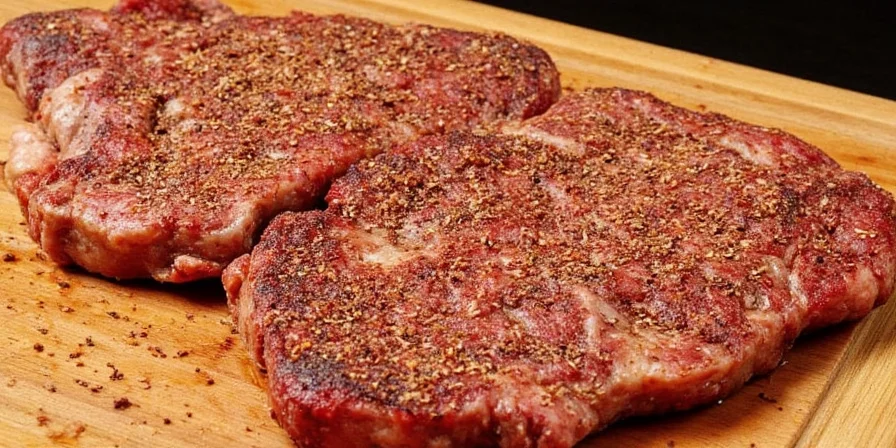
What Exactly Is Montreal Steak Seasoning?
Much like its name suggests, this seasoning blend originated in—you guessed it—Montreal, Canada. Known for its bold, garlicky, and peppery punch, it's the secret behind the legendary Montréal-style smoked meat and grilled steaks.
The magic lies in its balance of heat, salt, garlic, and herbs. Unlike many American-style rubs that lean heavily on sugar and paprika, Montreal steak seasoning keeps things savory, earthy, and intensely aromatic.
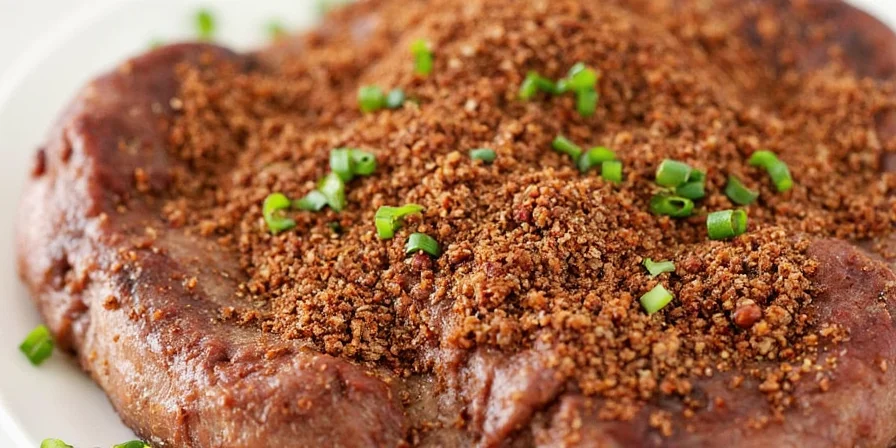
Why Go Homemade? The Spice Lover’s Advantage
While you can buy pre-made Montreal steak seasoning at the store, why settle for average when you can customize something extraordinary?
- Control over quality and freshness of ingredients
- Tweak flavors to match your personal taste profile
- Avoid unnecessary additives, preservatives, or anti-caking agents
- Cost-effective in the long run
- Satisfying DIY experience that makes you feel like a true spice alchemist
Essential Ingredients: Your Flavor Powerhouse
Let’s break down what typically goes into a classic homemade Montreal steak seasoning:
| Ingredient | Typical Amount (per 1/4 cup mix) | Flavor Contribution |
|---|---|---|
| Coarse Sea Salt | 2 tbsp | Balances other flavors, enhances overall taste |
| Black Pepper (crushed or coarse ground) | 2 tbsp | Peppery bite, slight heat |
| Garlic Powder | 1 tbsp | Rich umami, savory backbone |
| Onion Powder | 1 tbsp | Enhances sweetness, depth |
| Crushed Red Pepper Flakes | 1 tsp | Heat kick without overwhelming |
| Paprika (optional for color) | 1 tsp | Visual appeal, mild smokiness |
| Dried Thyme or Rosemary | 1 tsp | Earthy, herbal notes |
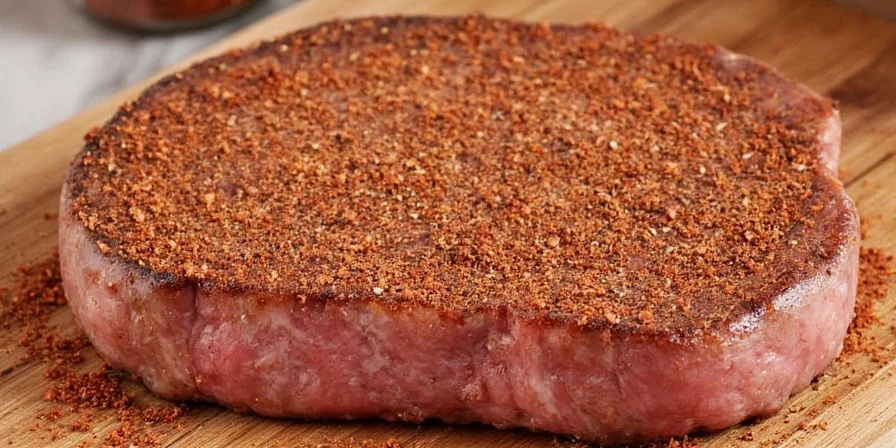
Pro Tips for Crafting the Perfect Blend
Here are five practical and spicy-smart tips to level up your Montreal steak seasoning game:
- Use Whole Spices When Possible: Grind black peppercorns and coriander seeds fresh for maximum potency. The difference in aroma and flavor is night and day.
- Toast for More Depth: Lightly toast mustard seeds, coriander, or fennel seeds before grinding. This unlocks complex, nutty undertones.
- Balance Is Key: Adjust ratios based on your palate. More garlic? Less pepper? No problem. It’s your blend!
- Add Citrus Zest for Brightness: Lemon zest adds a surprising pop. Try adding a teaspoon for a unique twist.
- Don’t Skip the Salt: Salt isn’t just for seasoning—it helps draw moisture from the meat, which creates that beautiful sear.
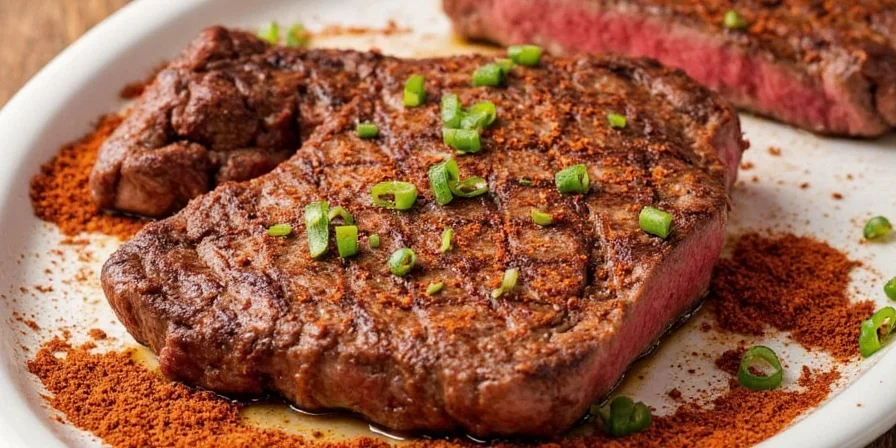
How to Use It Like a Pro Chef
Once you’ve got your blend ready, how do you use it effectively? Here are a few expert-approved methods:
- For Steaks: Generously coat both sides of the steak. Let sit for 30–60 minutes before grilling or pan-searing.
- As a Rub for Ribs or Chicken: Press firmly into the meat and allow to rest before slow cooking or smoking.
- In Stir-Fries or Roasted Veggies: Toss vegetables or tofu in a bit of oil and seasoning before roasting for an umami-rich side dish.
- As a Finishing Touch: Sprinkle on fries, popcorn, or even avocado toast for a gourmet kick.
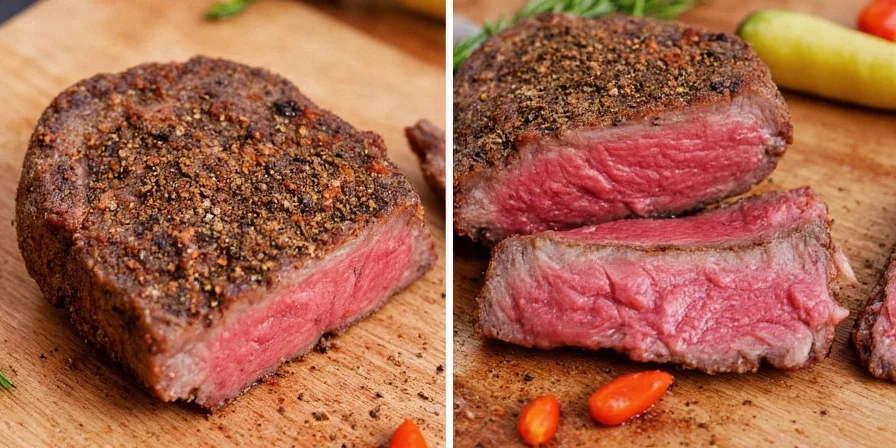
Spice Profile Breakdown: A Global Comparison Table
To put things in perspective, here’s how Montreal steak seasoning stacks up against other global spice blends:
| Seasoning | Main Ingredients | Heat Level | Primary Flavor Notes | Best For |
|---|---|---|---|---|
| Montreal Steak | Salt, pepper, garlic, onion, thyme | Low-Medium | Savory, peppery, herbaceous | Steaks, grilled meats |
| Cajun Seasoning | Chili powder, garlic, oregano, cayenne | High | Spicy, earthy, smoky | Gumbo, jambalaya, grilled seafood |
| Za’atar | Thyme, sumac, sesame seeds | None | Tangy, nutty, floral | Bread dips, roasted veggies |
| Garam Masala | Cumin, coriander, cardamom, cinnamon | Low | Warm, sweet, aromatic | Indian curries, lentils |
| Shichimi Togarashi | Red chili, Szechuan pepper, citrus peel | Medium | Spicy, citrusy, numbing | Ramen, udon, grilled fish |

Storage Secrets: Keep It Fresh Longer
You made your own blend—now make sure it doesn’t go stale after a week. Here’s how to store it right:
- Airtight Containers: Glass jars with tight lids work best. Label them with the date and contents.
- Keep It Cool & Dry: Store in a dark cupboard away from heat and humidity to preserve potency.
- Freeze for Longevity: If you don’t use spices often, freeze your blend in small portions for up to a year.
- Revive Old Blends: If your spices lose their punch, briefly toast them in a dry pan to awaken the aromas.
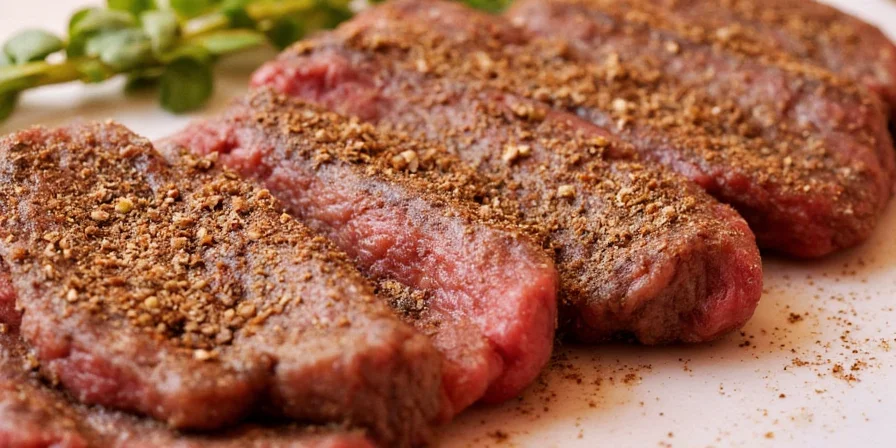
Final Thoughts
Making your own homemade Montreal steak seasoning is more than just a kitchen hack—it’s a journey into the heart of global spice traditions. With a few simple ingredients and a little curiosity, you can elevate your meals from bland to brilliant.
So go ahead, play with the proportions, experiment with new twists, and most importantly—enjoy the process. Because when it comes to spices, the world is your flavor playground.
Until next time, happy spicing and bon appétit!

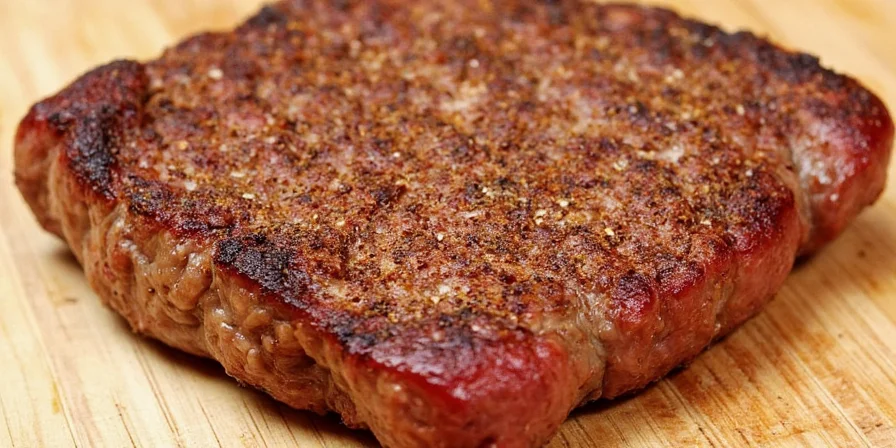









 浙公网安备
33010002000092号
浙公网安备
33010002000092号 浙B2-20120091-4
浙B2-20120091-4